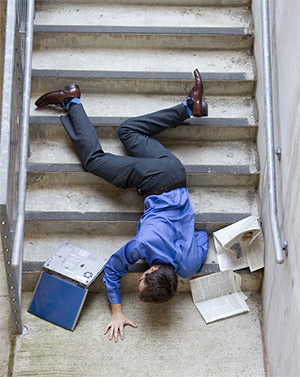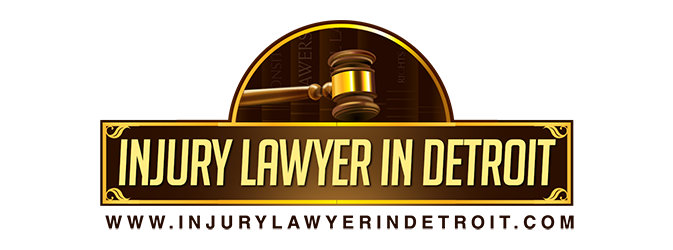Detroit Slip and Fall Injury Attorneys
If you slip and fall on someone else’s property that individual can be held liable for your injuries. Thousands of people are injured every year as a result of slip and fall accidents on private property and even government owned property.
Determining fault and “liability” on the part of the property owner will require determining the level of duty owed to the guests frequenting the property, a failure to act to protect guests of the property, and whether or not the condition causing the slip and fall was unknown to the property owner. Additionally, whether or not the victim has taken certain precautions to avoid known hazards plays a role in determining fault and liability.
Assessing responsibility and the duty of care owed by a property owner aside, it must be understood that slipping and falling is a common daily occurrence and a mere slip and fall doesn’t necessarily equate to holding a property owner liable. As in almost all slip and fall accidents, the victim is held to a level of duty as well. Property owners cannot be held liable for accidents that occur as a result of a victim’s failure to acknowledge natural dangerous conditions, nor can a victim expect liability on the part of a property owner for obvious hazards that would be reasonably avoided. Determining the level of duty of care of property owners and victims requires careful assessment of the existing conditions and the actions or inaction on the part of both parties.
There exists a range of slip and fall injuries caused for which property owners can be held liable:
- Slipping
- Falling
- Tripping
- Falling debris/products
- Construction accidents
- Water, ice or snowy conditions on property
- Grease, oil, or some other type of lubrication
- Floor polish or unmarked waxed floors
- Dangerous roadside debris
- Stairwell accidents (due to poor lighting)
- Premises liability (Inadequate Security/Criminal Attacks)
- Poor maintenance
Determining faulty on the part of a property owner requires weighing the balance of “reasonableness” of the actions of the property owner versus the “reasonable” behavior of the victim.
Our team of attorneys has the ability to determine whether the property owner exercised “reasonableness” in making a regular or through effort to keep the property safe. Elements of determining a property owner’s reasonableness will require inquiries in the property owner’s knowledge of the unsafe or unclean premise, the property owner’s ability and the financial feasibleness to correct the unsafe or unclean factor on the premises, whether or not the property owner is required to make regular maintenance and whether or not it was legitimate for the object that caused the injury to have been on the premises.
Such facts will then be balanced against the reasonableness of the victim’s behavior and actions on the property. If the victim contributed to the cause of the injury or failed to exercise reasonable caution in avoiding any open and obvious danger, then the claim will be affected.
While you must exercise reasonable caution to avoid injuries pursuant to obvious hazards, property owners owe a level of responsibility to other parties for “known” hazards and protecting against them. To determine whether or not your slip and fall equates to legal damages against a private property owner or even a governmental agency, our legal team can determine whether the requisite factors existed to hold the party liable.
Depending on which way the scale tips, damages can be extensive or limited. Furthermore, government entities are limited in their payment of damages. To ensure that you recover what you deserve, consult with our lawyers today.
